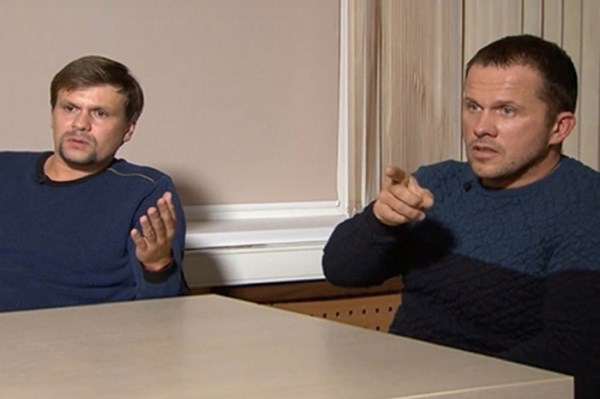Media: Passports of Skripal poisoning suspects may unmask other Russian intelligence agents
The passport numbers of Alexander Petrov and Ruslan Boshirov, whom the UK suspects of attempting to assassinate Sergei Skripal and his daughter Yulia, may reveal the identities of other Russian intelligence agents, writes news outlet The Insider, which is working together with the investigative group Bellingcat to investigate the facts surrounding the suspects’ identities.
Another series of studies published on Thursday state that Petrov and Boshirov’s passport numbers are virtually identical, differing by only one digit. The numbers are also very similar to the passport number of Eduard Shirokov (Shishmakov), another Russian intelligence agent whose cover was blown some time ago.
“Apparently, GRU staff really do receive a special series of passports – and if this is the case, then anyone who wants to, once they get access to the passport database, could identify all the staff of the Main Directorate of the General Staff,” the article states.
The Insider also confirms that the phone number found on copies of Petrov’s and Boshirov’s passport documentation belongs to the Russian Defense Ministry, most likely military intelligence.
The article also cites sources who claim that Petrov and Boshirov were the same Russians who were reportedly arrested previously in the Netherlands on suspicions of monitoring the Swiss chemical laboratory in Spiez, in an attempt to hack its computer network.
The Insider and Bellingcat previously published documents which they claim come from the Russian passport system, and which, when analyzed, indicate that Petrov and Boshirov belong to the Russian intelligence agency. When interviewed on the Russian TV channel RT, Petrov and Boshirov claimed to be businessmen, who had traveled to Salisbury as tourists.
On September 5, the Prosecutor Office of the UK disclosed that Russian citizens Petrov and Boshirov are its prime suspects in the Skripal poisoning case, and stated that there is “sufficient evidence” to accuse them.
British Prime Minister Theresa May said that the two suspects are Russian intelligence officers.
According to the investigation, the suspects travelled to the UK on March 2 on Russian passports with different names. The strongest evidence against them is that traces of the Novichok nerve agent were found in their hotel in London.
On September 13, Russian President Vladimir Putin said that the UK’s suspects are only civilians.
The poisoning of the Skripals, who have recovered after a lengthy hospitalization, led to a widespread crisis in western countries’ diplomatic relations with Russia.
